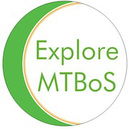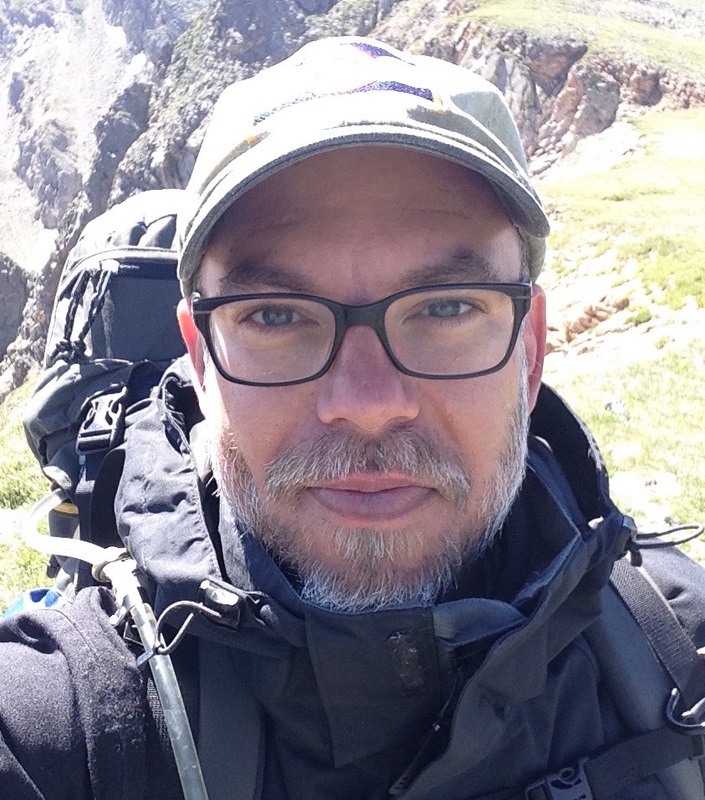So, with all that as background, my local professional teaching orgainzation, CCTM (Colorado Council for Teachers of Mathematics), put out a call for presenters. My spiel is a bit longer than the 2-5 sentences they asked for. Gladly, I only made a commitment to attempt to present.
Session Description:
"Creating interesting math tasks doesn’t have to be hard--just look to the sciences. Physics is chocked full of relationships begging for math teachers to steal. Linearity? Done. Quadratics? Done. Exponential, trigonometric and rational functions? Done, done and done. Shifting towards these types of rich tasks can also make implementing the CCSS math practices and the NCTM teaching practices feel a bit more natural. Let’s talk about using experiments and modeling to help our students engage with the content and have more fun in math class."
During the session, I plan to have the participants do an experiment (not sure which one yet) and then have a whole-session discussion where groups present how they went about running the experiment and modeling the data (a la 5 practices). Then we will make some connections between how using experiments and rich tasks makes it a bit more natural to incorporate the CCSS math practices (below) and the NCTM Principles-to-Actions math teaching practices (also below). It will be a fun-filled 50 minutes. Or at least I'll have a good time with it.
CCSS Math Practices I can easily make connections to:
-CCSS MP2: Reason Abstractly and Quantitatively
-CCSS MP3: Construct viable arguments and critique the reasoning of others.
-CCSS MP4: Model with mathematics
-CCSS MP5: Use appropriate tools strategically.
-CCSS MP7: Look for and make use of structure.
NCTM Principles to Actions Teaching Practices I can easily make connections to:
-MTp2: Implement tasks that promote reasoning and problem solving.
-MTp3: Use and connect mathematical representations.
-MTp4: Facilitate meaningful mathematical discourse.
-MTp6: Build procedural fluency from conceptual understanding.
-MTp7: Support productive struggle in learning mathematics.
- "In order to keep our registration costs low, CCTM provides a "membership only" conference fee for a primary speaker."
- "Please note that a projector will NOT be provided for speakers. If you need to display during your presentation, please make arrangements for your own projector."
Then there is the issue of tech. CCTM is severely limiting the number of people who are willing to present by forcing presenters to get their hands on a projector. Things get even more complicated when you think about logistics in a presentation room. There are 30-50 people exiting the room and/or waiting to talk to the presenter in the 10 minutes between sessions. The presenter is kind and gracious and is going to chat people up rather than tearing down his or her tech. I'm then left feeling frustrated and guilty for being frustrated that I can't set up my own tech and get everything just so in the room before all the attendees arrive. Can't we just rent a school?
After some reflection, I think my anger and frustration stem from my wanting to make my local professional organization's PD offerings better but feeling that through their policies they are putting up barriers for teacher presenters to participate. I want to see what excellent teachers around the state are doing in their classrooms. I want people who don't think they have anything to offer--which is the way I feel--to put themselves out there and share. People won't share if they have to: spend days making a presentation, still pay money to attend, and find, bring, and set up their own tech. They'll give up, sit quietly in the seats, and suffer through some corporate song and dance trying to convince us for an hour that we should buy their materials. I hope I'm wrong; I hope other teachers will jump through the hoops and share.
Do other conferences do it like this?
I checked both boxes but I have no clue where I'm going to find an LCD projector.
 RSS Feed
RSS Feed



